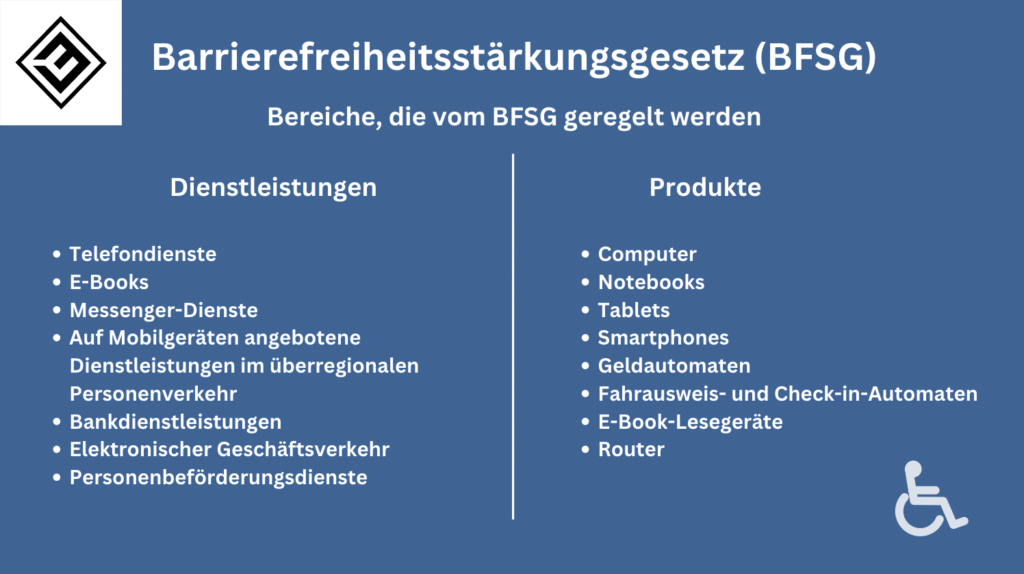
Accessibility Improvement Act (BFSG): Requirements and opportunities for companies
You are currently seeing placeholder content from Standard. To access the actual content, click on the button below. Please note that data will be passed on to third-party providers.
Read moreThis video was generated using Synthesia.io.
On June 28, 2025, the Accessibility Improvement Act (BFSG) will come into effect, enhancing accessibility in Germany. The law directly implements the EU Directive 2019/882 (European Accessibility Act) into German law. It aims to improve digital and physical accessibility for people with disabilities and older individuals. Additionally, people with limited digital experience will benefit from the accessibility measures.
Companies gain opportunities to tap into additional target audiences and expand their reach. However, they must also comply with certain legally binding requirements.
Which products and services are affected?
The BFSG covers many products and services that must be designed to be accessible to everyone. The products include hardware such as notebooks, smartphones, self-service terminals, e-book readers, and routers.
Services such as telecommunications, e-books, messenger services, banking services, e-commerce, and mobility services are also covered by the law. These offerings must be accessible to all user groups and easy to find and use without external assistance.

Requirements for companies
The BFSG defines clear obligations for manufacturers, importers and service providers that they must fulfill.
- The technical documentation serves as proof of compliance with the established accessibility standards.
- A conformity assessment procedure verifies and confirms the compliance of products and services with standards.
- The CE marking visibly indicates that all accessibility requirements have been met.
- Information obligations require accessible product and service information, such as terms and conditions (T&C).
Micro-enterprises with fewer than ten employees and an annual turnover of less than two million euros are exempt for services. However, this exemption does not apply to products, which must continue to comply with the requirements.
Transition periods and consequences of non-compliance
Some areas have transitional regulations, meaning that self-service terminals must be fully accessible only by 2040. Violations of the BFSG can result in fines of up to 100,000 euros. Market surveillance authorities have the power to withdraw products or services from the market and prohibit their distribution.
Relevance for online marketing
Accessibility is not only a legal requirement but also provides businesses with valuable competitive advantages. Accessible websites and online shops enhance user-friendliness, expand reach, and improve SEO rankings. Easy-to-understand content, keyboard accessibility, and optimized HTML structures promote accessibility and strengthen user trust.
How online marketing agencies can help
Full-service agencies like Media Beats GmbH help businesses successfully implement accessibility requirements. This includes:
- Accessible web design: Modern and inclusive websites as well as user-friendly online shops.
- Technical optimization: Implementing standards such as ARIA labels and keyboard navigation.
- Content adaptation: Creating clear texts and accessible media content.
Conclusion
The BFSG marks an important step toward greater inclusion and accessibility in Germany. Companies that adapt early to the new requirements ensure legal compliance and gain competitive advantages in the digital world. With professional support and a clear strategy, accessibility becomes an opportunity to reach new target audiences and enhance brand image.
